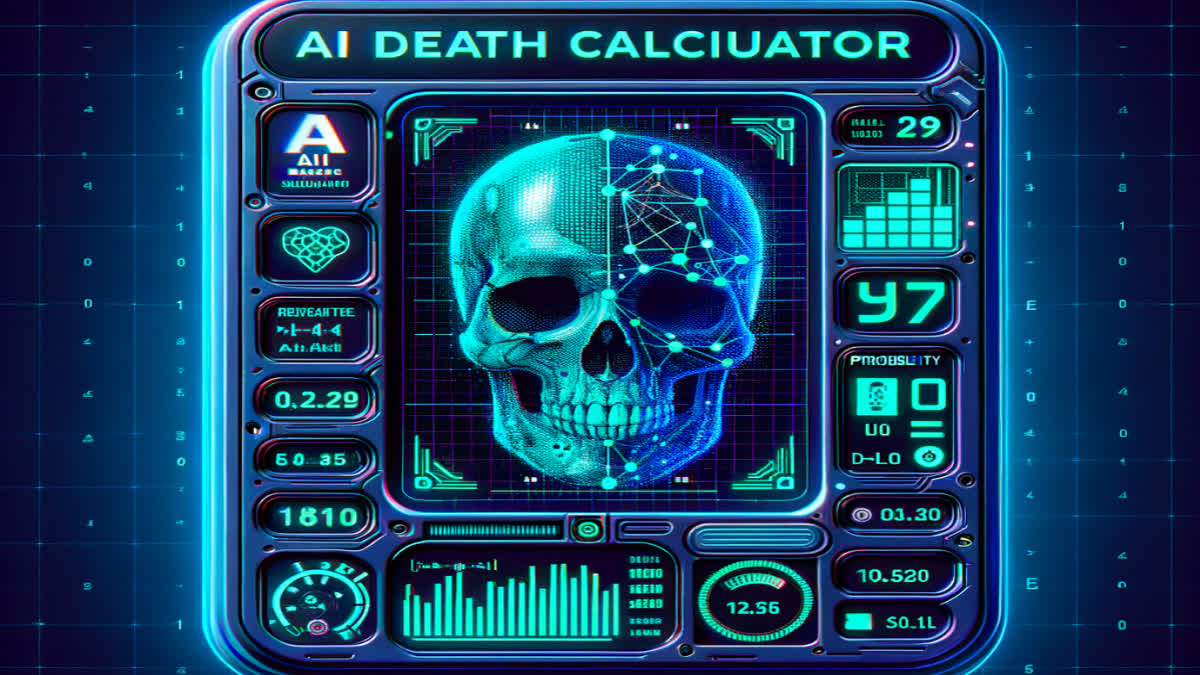Hyderabad: Scientists are coming closer to the possibility of predicting an individual's time of death. Yes, you heard it right, the newly developed artificial intelligence algorithm known as the "doom calculator", comparable to ChatGPT but without direct user interaction, has demonstrated an impressive predictive accuracy of over 75% in determining whether people would pass away within a four-year timeframe.
The research, conducted collaboratively by teams in Denmark and the United States, has been detailed in the Nature Computational Science online journal. The core of this technology lies in a machine-learning transformer model named life2vec.
Operating similarly to transformer models like ChatGPT, life2vec analysed data—comprising age, health status, educational background, employment history, income, and various life events—from a sample of more than 6 million individuals in Denmark. This data, provided by the Danish government, formed the basis for the algorithm's predictions.
Sune Lehmann, lead author of the December 2023 study “Using a sequence of life-events to predict human lives,” told The New York Post, "We use the technology behind ChatGPT to analyse human lives by representing each person as the sequence of events that happens in their life."
The researchers applied life2vec to a diverse population of six million Danish subjects, spanning different genders and age groups from 2008 to 2020. The AI system then assessed which individuals were likely to survive for at least four years beyond January 1, 2016.
This AI innovation employs cutting-edge algorithms that analyse a wide range of factors, including your age, health habits, family history, and lifestyle choices. Some calculators even sync with wearable devices to provide real-time health updates, ensuring the most accurate estimations. The tool offers personalised tips and recommendations tailored to your unique profile, helping you make healthier choices.
How to use the technology? (As instructed by life2vec)
- Enter your age, weight (in kilograms), height (in centimetres), daily calorie intake, and exercise level (on a scale of 0-10, with 4 being average).
- The AI algorithms will then analyse your data against vast health statistics and medical research.
- The calculator will serve up an estimated range or average of your potential lifespan.
- You'll receive personalised insights and tips on how to potentially extend your life based on your unique profile.
The major highlight of this innovation is that the tool is free and Accessible. Users can access the Death Calculator online without cost, making it a convenient and valuable resource for anyone curious about their potential lifespan.
Despite the significant strides in predictive capabilities, the question of whether individuals can input their data into this "doom calculator" remains unanswered. Currently, the program and its associated data are unavailable to the public, with privacy concerns taking precedence.
The concept of an AI-driven tool capable of foretelling one's mortality raises ethical considerations. While the potential insights into life expectancy may offer valuable information for healthcare and planning, the ethical implications surrounding privacy and the psychological impact on individuals warrant careful consideration.
Read More



